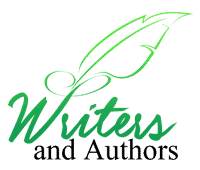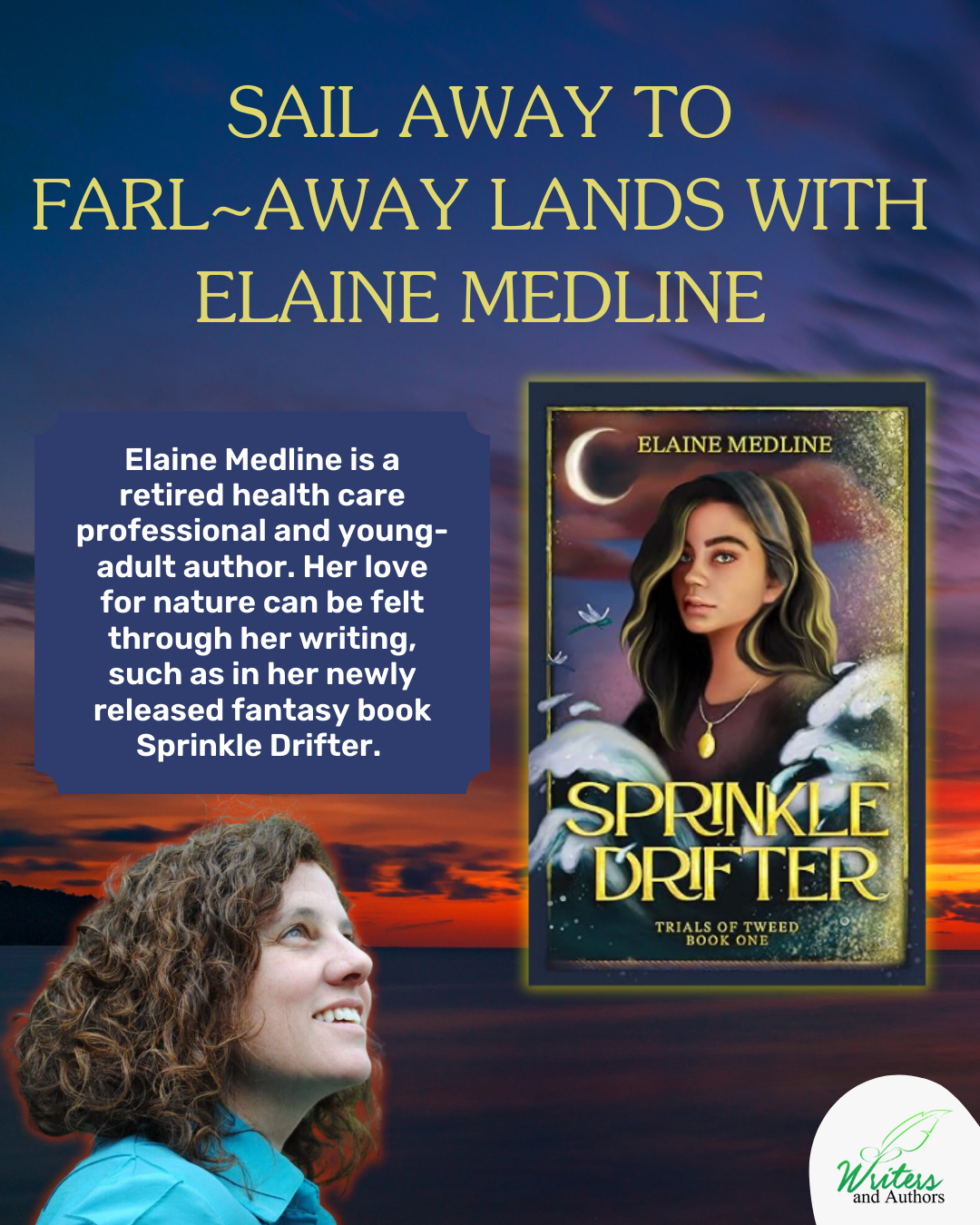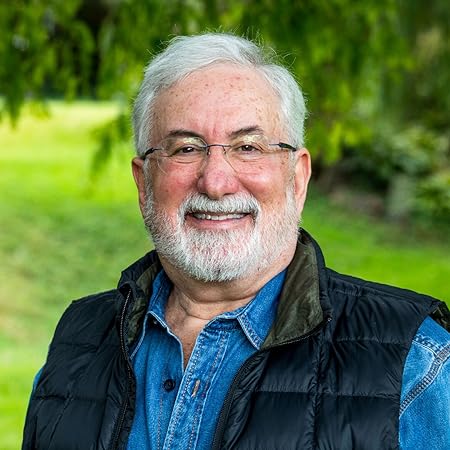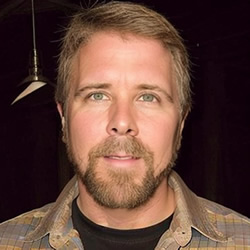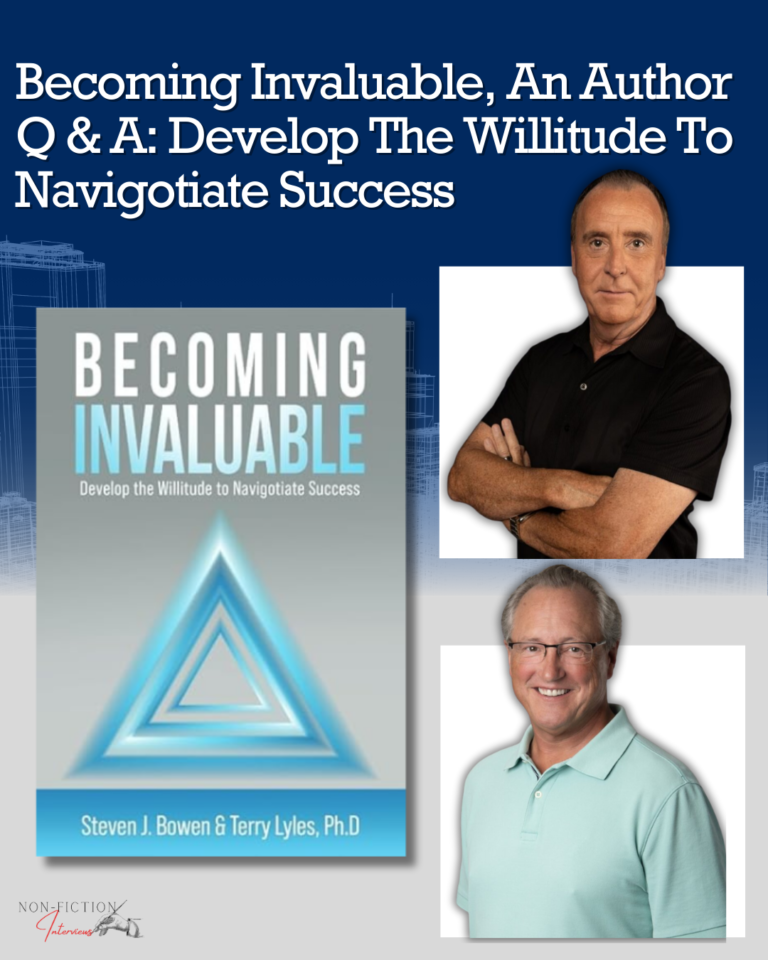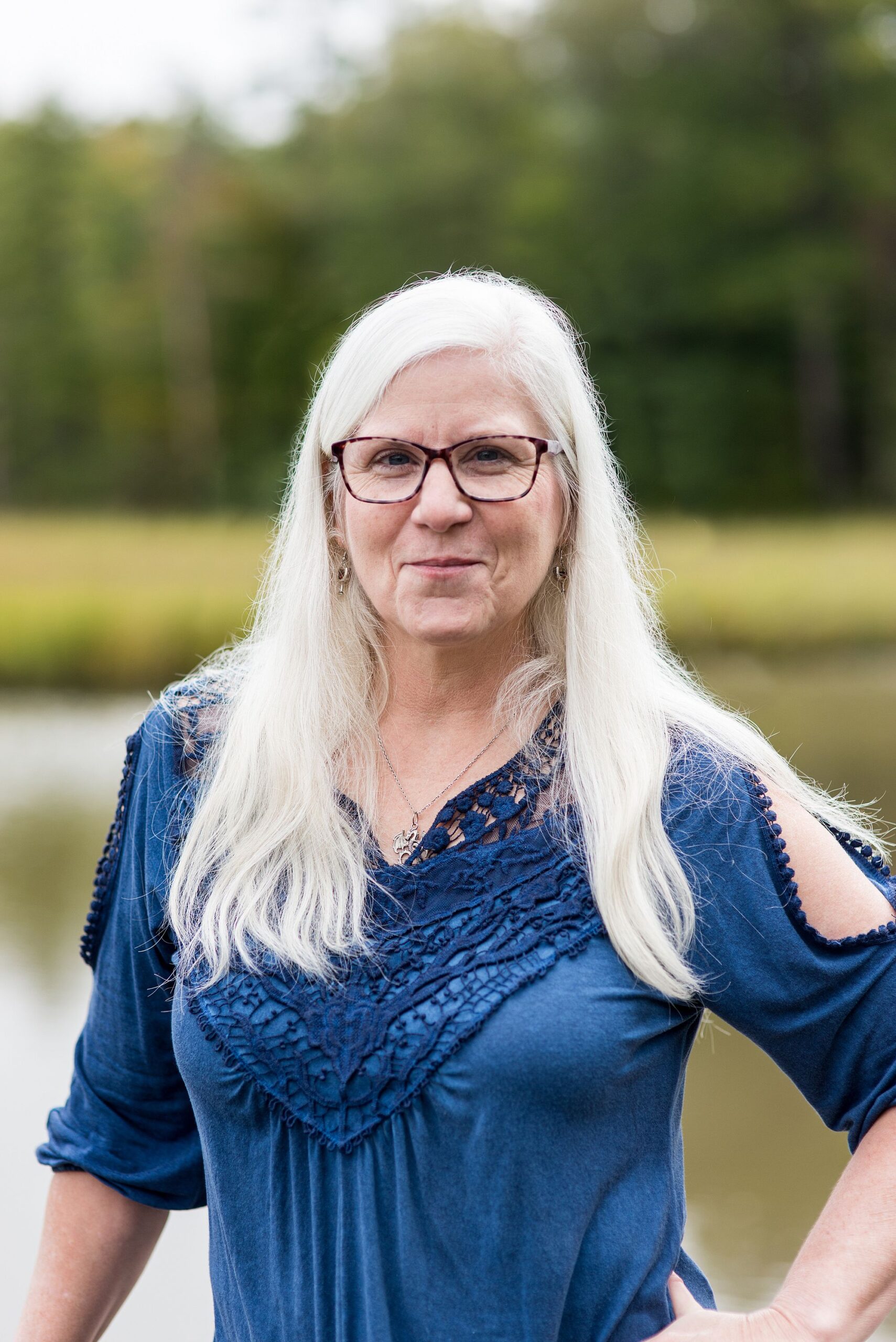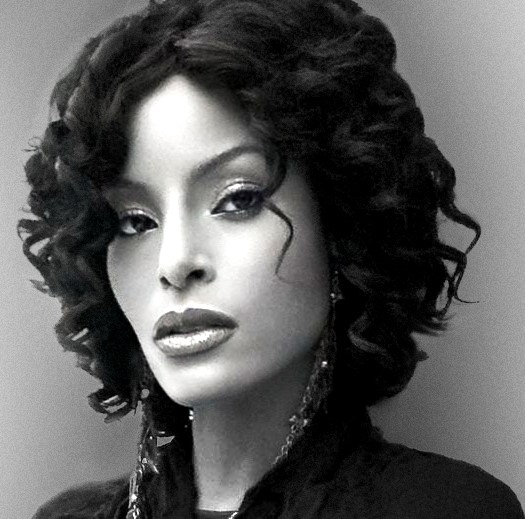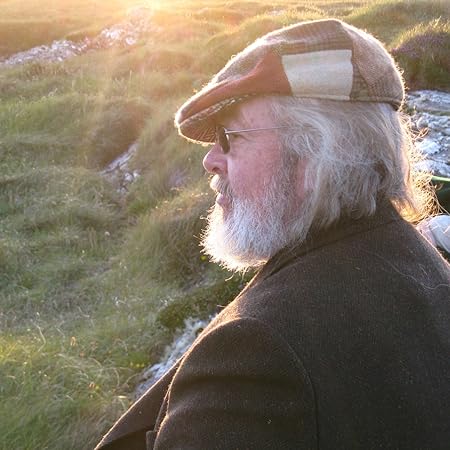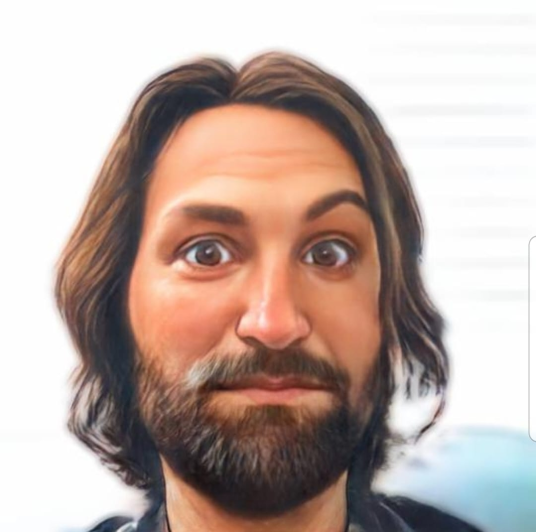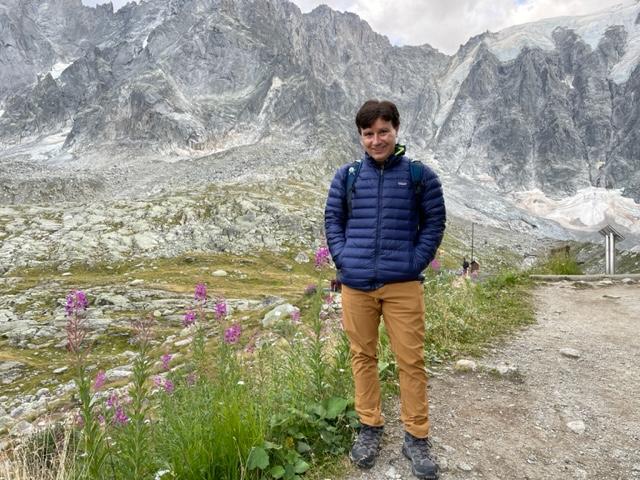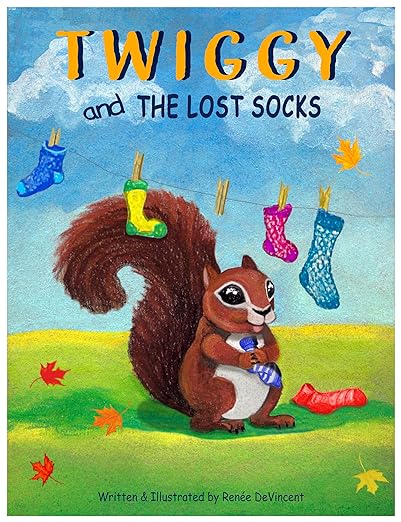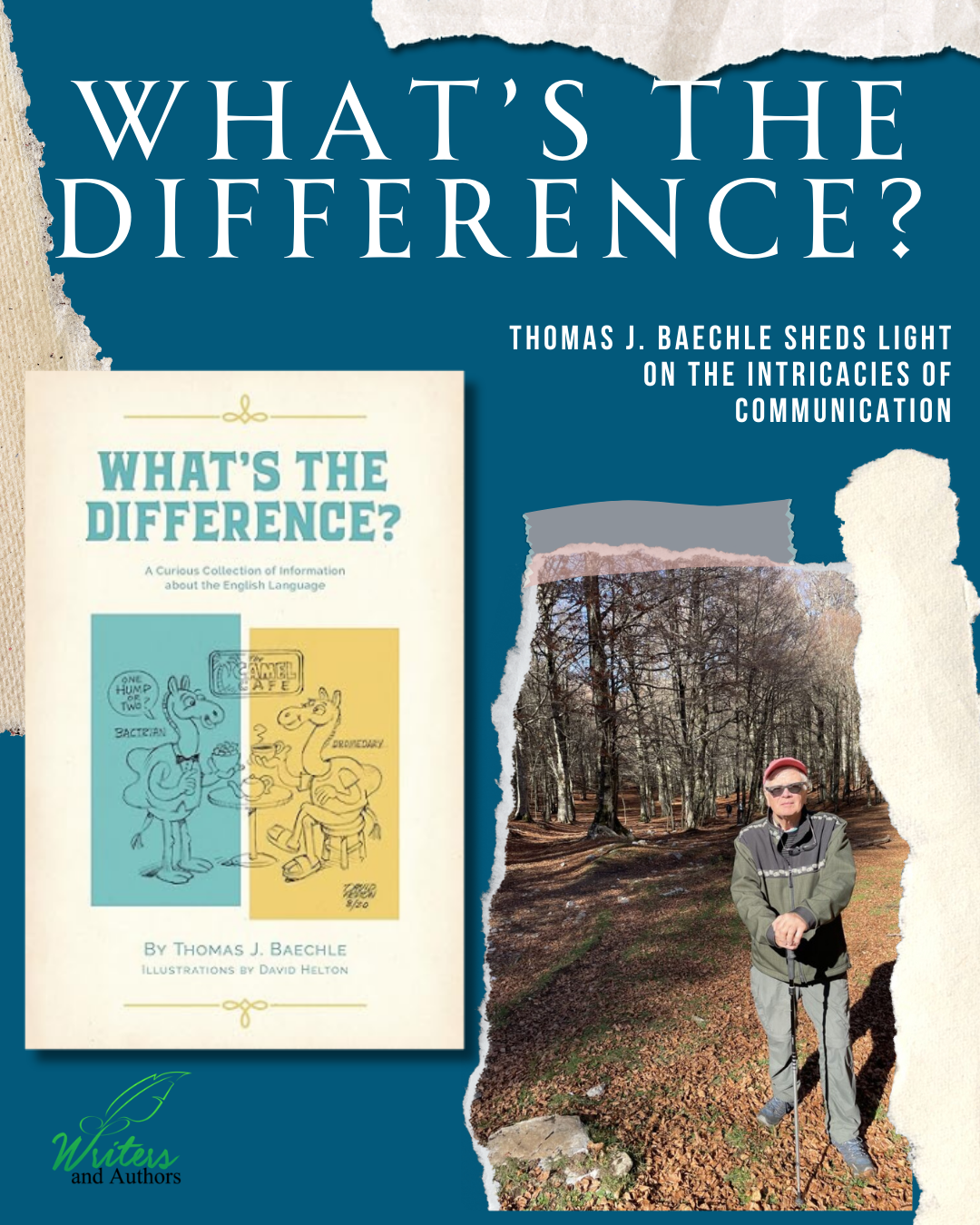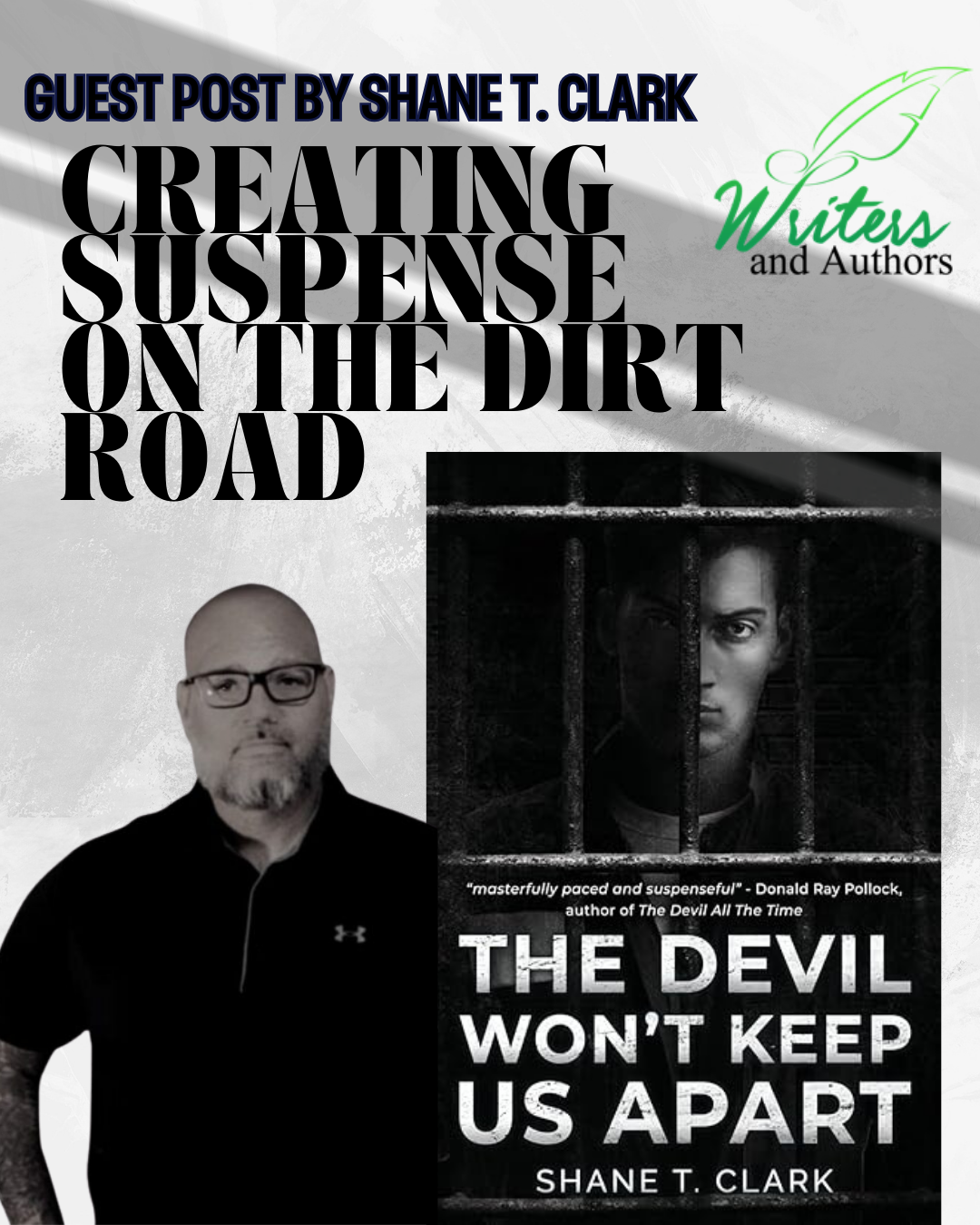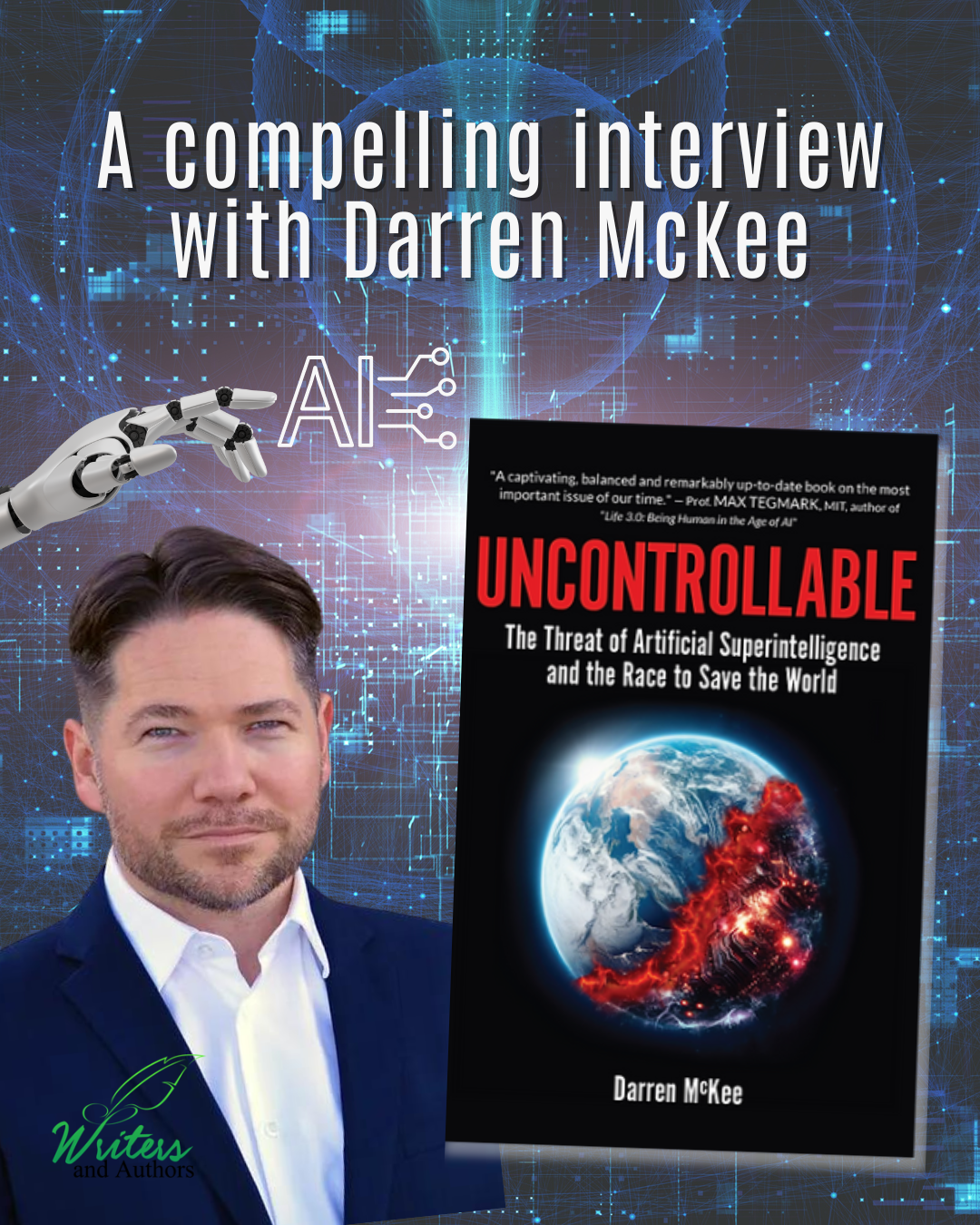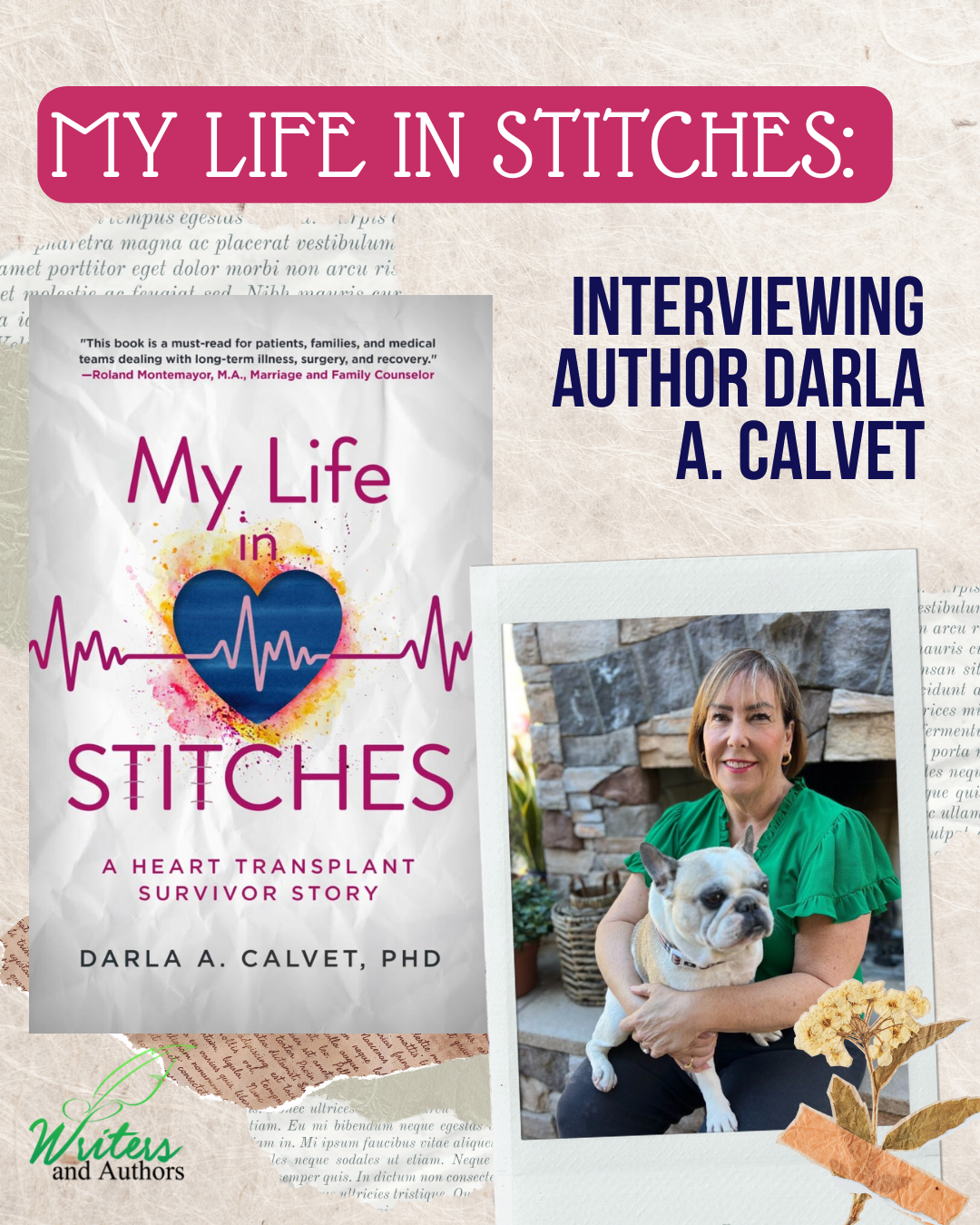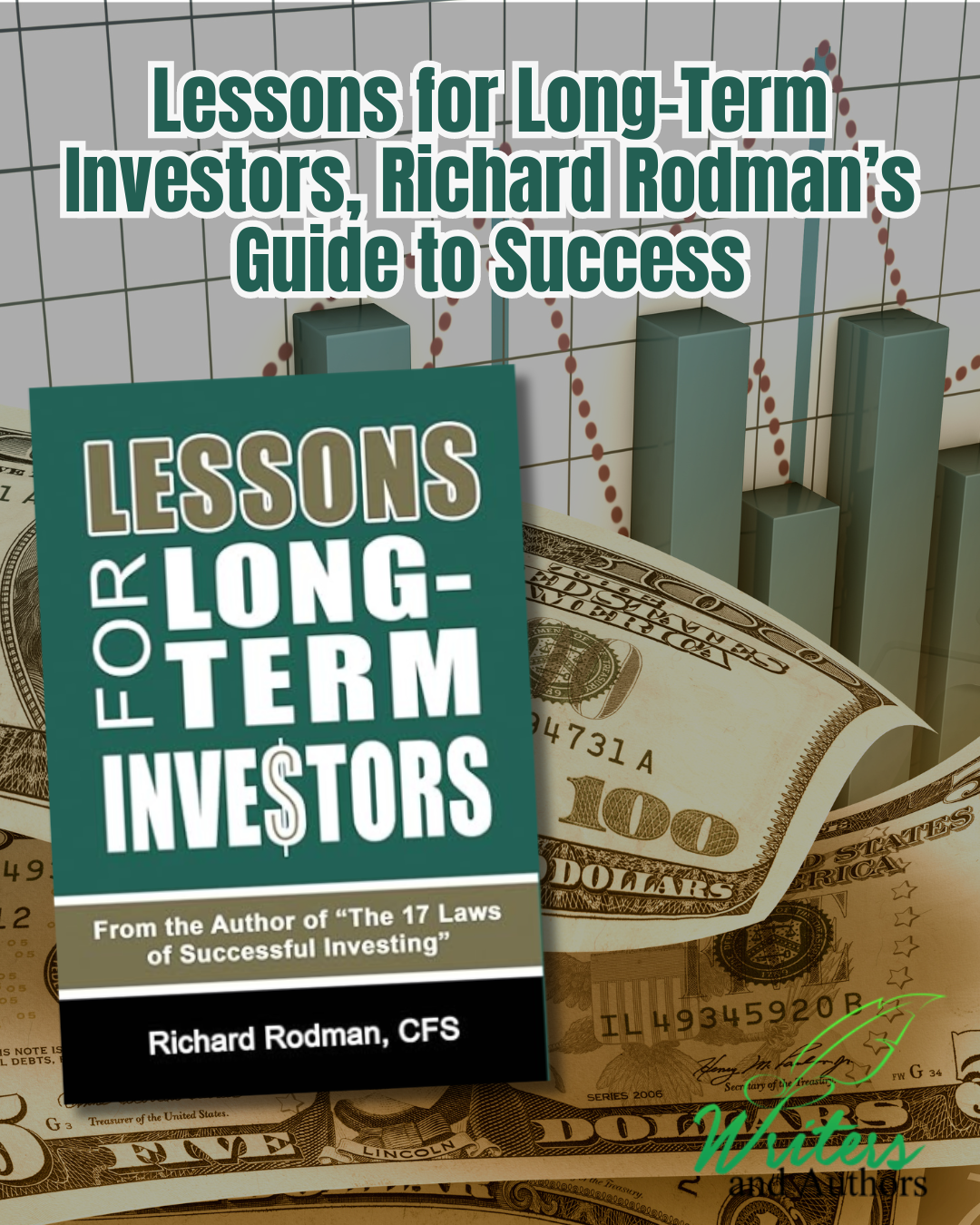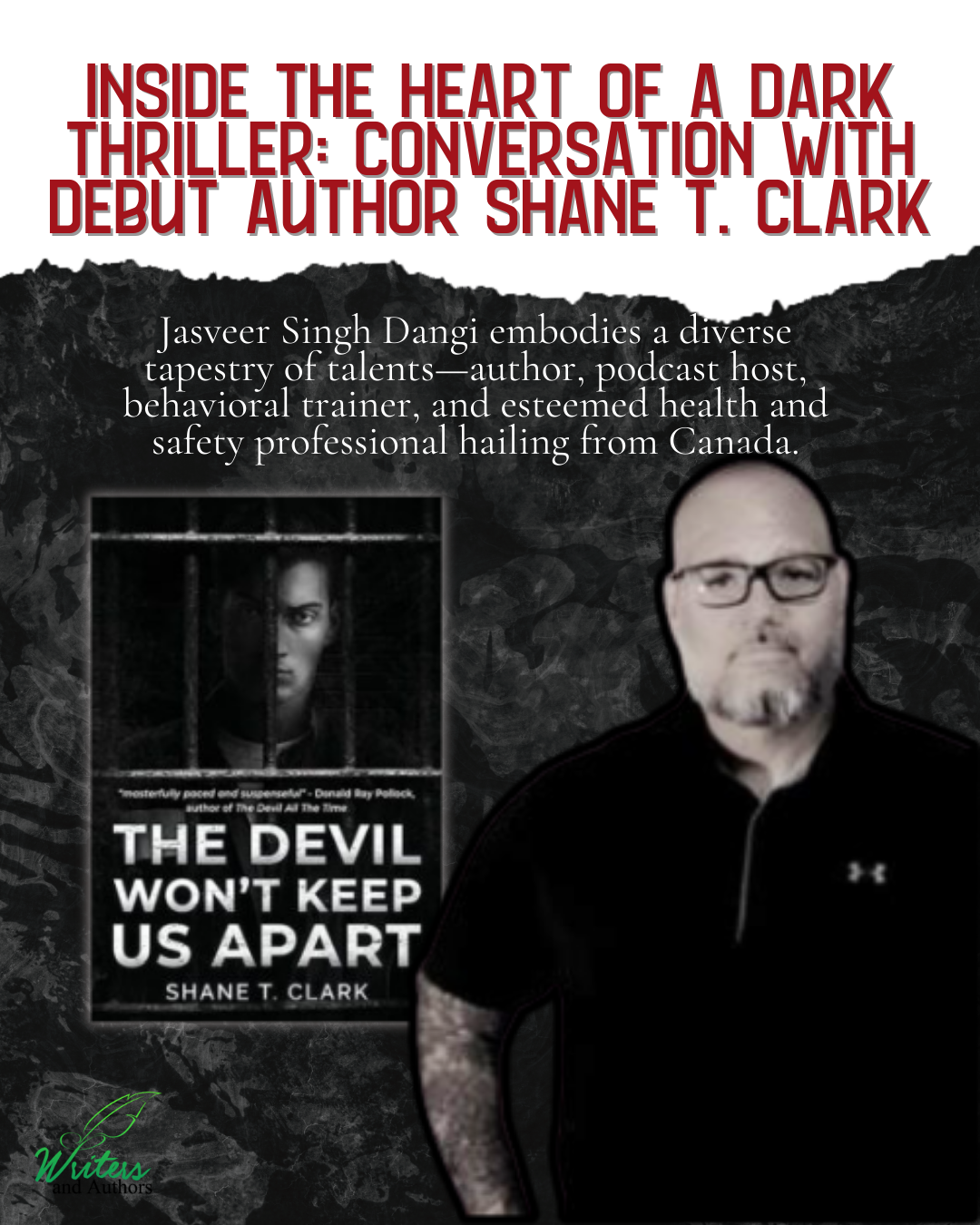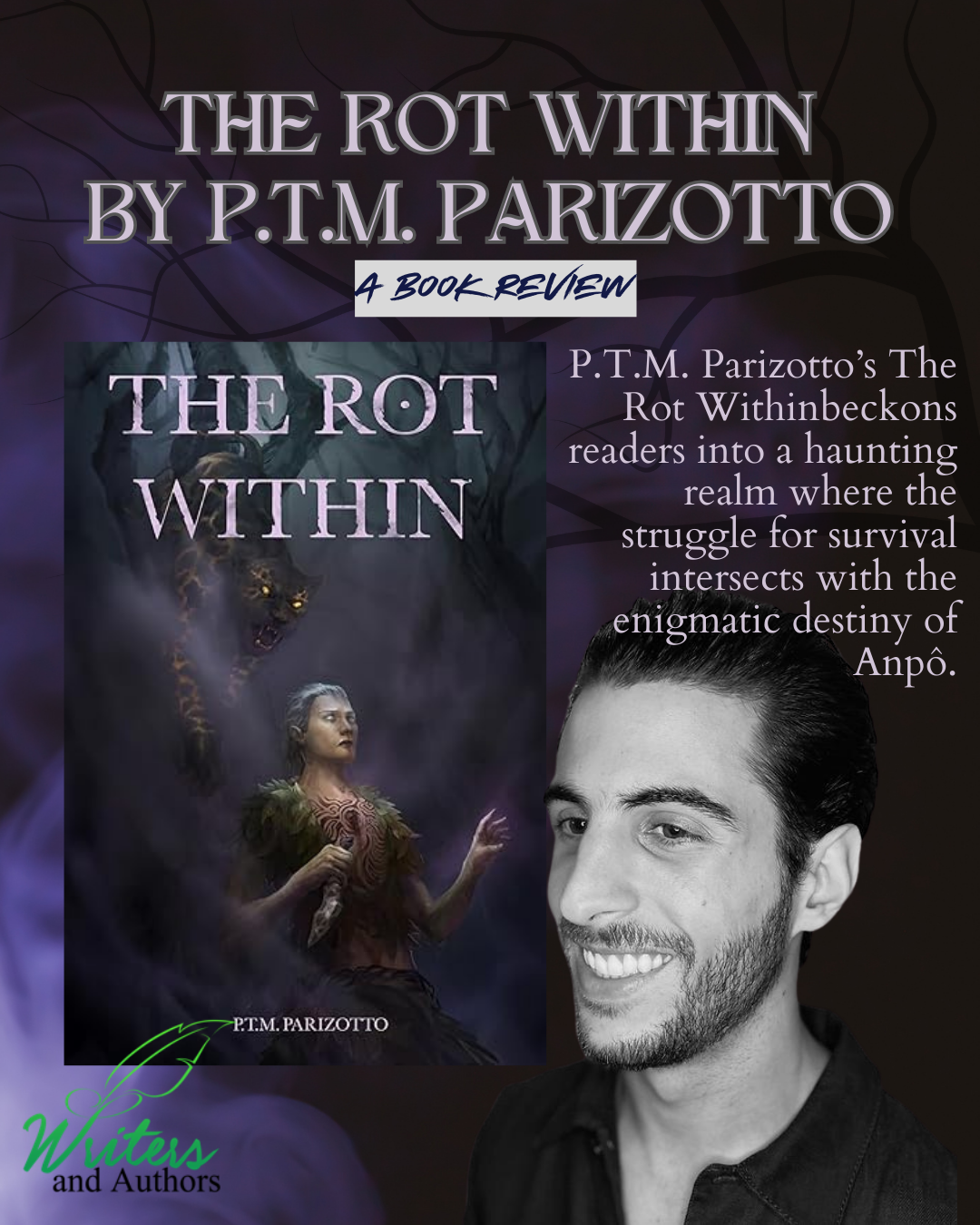Elaine Medline is a retired health care professional and young-adult author. Her love for nature can be felt through her writing, such as in her newly released fantasy book Sprinkle Drifter. It is the first in a series, following a young girl on her search for excitement and travels to faraway lands. Magic, plot twists, and working against all odds; this coming of age tale is bound to hook readers. In this interview, we get to know Elaine and her book a little more!
Background and Writing Process
Can you tell us a bit about yourself and your background as a writer?
I’m a former journalist living in the Canadian province of Quebec. Nearly twenty-five years ago, my middle-grade novel (That Silent Summer) was published by Scholastic, and I released the second edition in 2021. Recently I wrote a young-adult fantasy book, Sprinkle Drifter, the first of a series. It’s now available on Amazon. Besides writing, my career has focused on health care.
What inspired you to become an author?
I love sharing ideas through fiction. Despite how difficult writing can be, I feel calm when I put the proverbial pen to paper. When I don’t write, I don’t feel content. My first published work was a poem about clocks, which was put in my fifth-grade yearbook!
Can you describe your typical writing routine or process?
I write in sprints most days, starting after breakfast and when I’m done with New York Times puzzles like Wordle. I try to hit a daily word count of about 1,500 words, and continually edit what I’ve already typed. Flow is important to me. Each paragraph must lead seamlessly to the next, so I’m constantly revising sentences.
Do you have any writing rituals or habits that help you stay productive?
When I’m feeling distracted, I turn off the Internet. I like to reward myself with a television show after reaching a specific word count. Knowing I can soon watch a K-drama keeps me motivated!
How do you handle writer’s block or moments when inspiration seems elusive?
For the most part, I push through writer’s block. But sometimes I need to take a walk and allow my subconscious to take over—it’s amazing how well that works!
Book-Specific Questions
Let’s talk about your latest book. Can you provide an overview and what inspired this particular story?
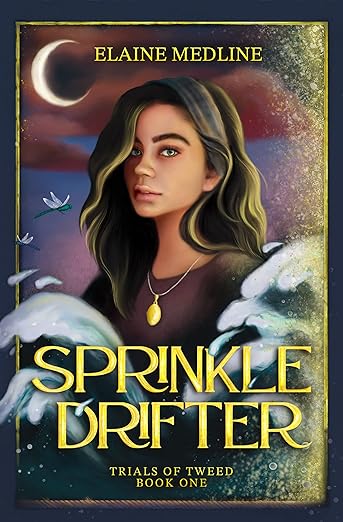 Sprinkle Drifter is a young-adult fantasy novel. The narrator is a 16-year-old girl of mixed heritage who is trying to find her place in a divided world. When given the chance to leave behind her dreary existence, she boards a schooner and travels to a foreboding border in the middle of the ocean. Will she make it to the other side?
Sprinkle Drifter is a young-adult fantasy novel. The narrator is a 16-year-old girl of mixed heritage who is trying to find her place in a divided world. When given the chance to leave behind her dreary existence, she boards a schooner and travels to a foreboding border in the middle of the ocean. Will she make it to the other side?
I’m told I have a wild imagination, which is why I chose the fantasy genre. My past work in refugee health care inspired the story, as the book relates to human migration.
What themes or messages do you hope readers will take away from your book?
Identity is the main theme of the novel. The main character, Tweed, faces a lot of discrimination due to her physical differences. She struggles with the notion of where she belongs. Tweed says, “There weren’t only two ways of being. There were three. Not just body. Not only mind. Spirit too. There may only be two mapped continents, I thought, but there were three sides to me.”
I hope I inspire readers by the way Tweed evolves—she grows increasingly courageous and self-aware after facing a litany of challenges.
Can you share any interesting anecdotes or experiences related to the writing of this book?
My adult daughter, Quin Brooks, is an artist and drew the cover for Sprinkle Drifter. It’s gorgeous! The colors, the mood, the depiction of the main character—just perfect. This was a wonderful mother-daughter collaboration.
What challenges did you encounter while writing this book, and how did you overcome them?
The first draft was 50,000 words, far too short for the fantasy genre. I had to flesh out the scenes, adding description and dialogue to reach the final length of more than 90,000 words. In a way, that first attempt was like a bloated outline in prose.
Are there any characters in your book that you feel particularly connected to, and if so, why?
A supporting character, Keya, is sassy, a bit obnoxious, but ultimately loyal to the main character. She’s got a strong personality and enlivens every scene she’s in.
How do you develop and flesh out your characters to make them relatable and engaging for readers?
Each character needs their quirks—a unique way of speaking, a defining physical characteristic, an interesting personality. My characters guide me, rather than the other way around. Honestly, they allow me to accompany them on their journeys. It’s like they’re out in the world rather than inside my head.
Can you discuss the setting and world-building in your book and how it contributes to the overall story?
The world in Sprinkle Drifter is called Trovess, which is similar to Earth, with two continents named Myot and Serrel. Myot is hot and flood-prone, populated by farmers and ruled by a monarchy—this is the area where most of the book takes place. The other continent is snowy and technologically advanced, which I know isn’t usual for a fantasy novel. The people of Myot value the body and are consumed by sports. Those inhabiting Serrel prize the powers of the mind. The two peoples have important physical differences, and the plot centers around illegal crossings. Migrants sneak from one continent to the other, taking enormous risks to enter forbidden territory.
Genre and Style
Your work falls into the fantasy genre. What draws you to this genre, and how does it inform your writing style?
While I read in all types of books except horror, I prefer to write in the fantasy genre because it provides an opportunity to unleash creativity and distort reality. At the same time, fantasy allows me to share a bit of social commentary that isn’t too lecturing.
How do you balance character development, plot, and world-building in your writing?
Character development, plot, and world-building are equally important. Ignore one and a book loses either depth, action, or context. Usually, I focus first on character development and plot, then work on expanding the world by adding cultural, political, and geographical details. In the end, those three elements become intertwined.
Are there any specific authors or works that have influenced your writing style or storytelling approach?
My favorite authors are Lucy Maud Montgomery, who wrote Anne of Green Gables, and Ben Okri, who won the Booker Prize for The Famished Road. Anne is such a lively, sympathetic character. And Ben Okri’s novels are dream-like and utterly mesmerizing—the best of magical realism.
Publishing and Authorial Journey
Can you share your journey to getting published? What advice would you give to aspiring authors?
Back in 1999, I made a dozen paper copies of my middle-grade novel and mailed them out to Canadian publishers. In those days, if your book was rejected, the publisher would send it back to you. Receiving bulky manila envelopes in the mail was not a good sign! Fortunately, several publishers sent acceptance letters and I chose to go with Scholastic.
This time, I decided to skip sending query letters and self-published. Technology has changed to make indie releases possible, and I wanted to maintain control over my intellectual property. My advice to aspiring authors: more than ever before, you can own the means of production, so go for it!
What has been the most rewarding aspect of being a published author?
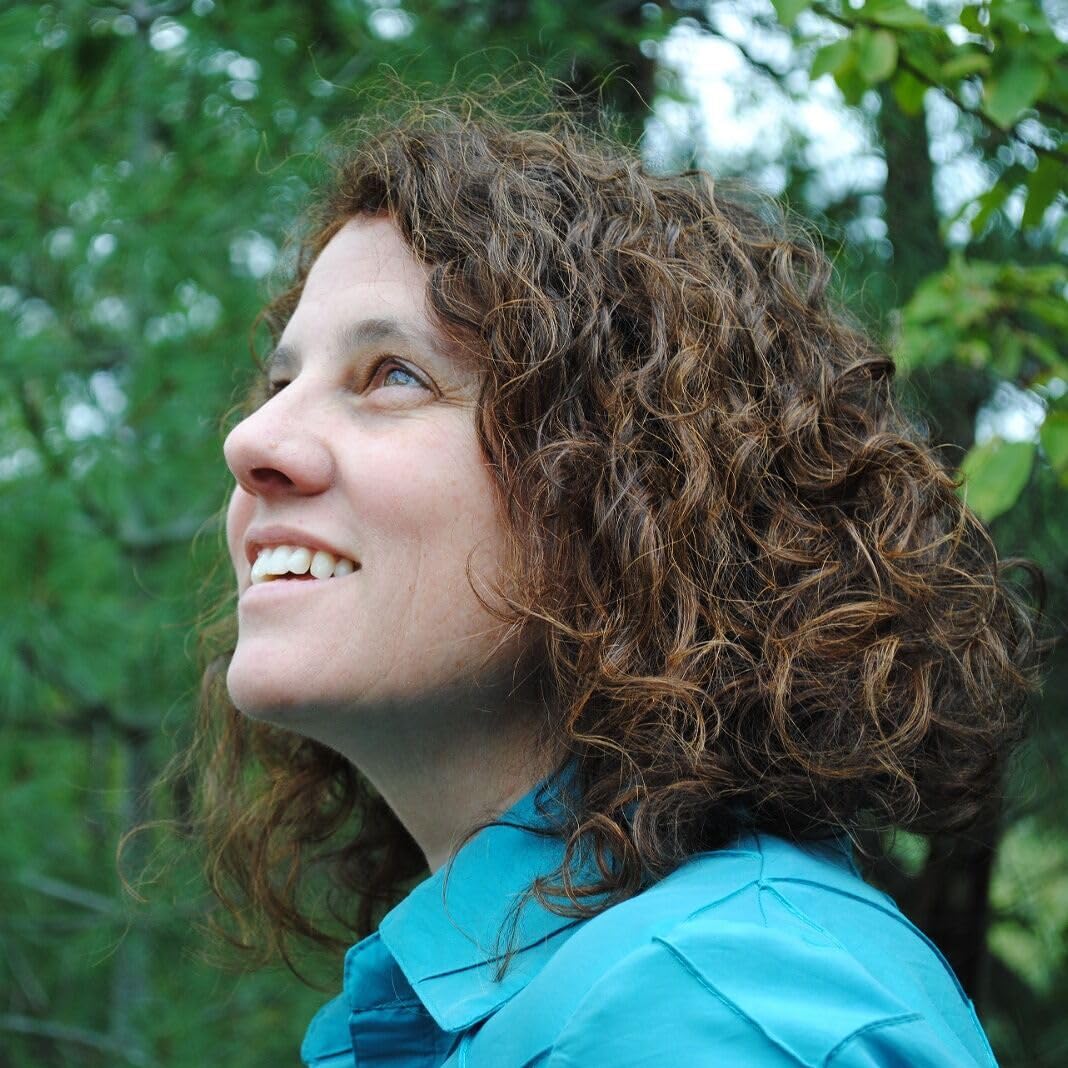 Holding the finished novel in my hands for the first time felt like such an accomplishment, even though it was nerve-wracking. No one except me knows about the false starts, the early plot holes, the struggles to open the laptop when I’m tired or out of ideas. That physical connection with the printed pages makes it all worthwhile. (Holding a Kindle is wonderful too, but just not the same).
Holding the finished novel in my hands for the first time felt like such an accomplishment, even though it was nerve-wracking. No one except me knows about the false starts, the early plot holes, the struggles to open the laptop when I’m tired or out of ideas. That physical connection with the printed pages makes it all worthwhile. (Holding a Kindle is wonderful too, but just not the same).
Are there any unexpected challenges or surprises you’ve encountered in your writing career?
During my journalism career, I faced relentless, hard deadlines. I didn’t always meet them (a reason for my nickname of “Deadline Medline”) but they kept me on a track. The lack of a real end date can be a problem. I counter that by setting daily word counts and pretending a boss is breathing down my neck.
Reader and Audience Engagement
How do you connect with your readers, and what role do reader interactions play in your writing process?
I have a monthly newsletter, and if a reader signs up for it, they receive a free short story. The title of the story is Far From Fervent, and it’s a prequel to Sprinkle Drifter. Here’s the link: https://dl.bookfunnel.com/ciy8szc9va
The short story takes place in the same world as Sprinkle Drifter, but two decades earlier and with a different main character.
Can you share any memorable reader feedback or fan interactions that have left an impact on you?
In 2020, two people contacted me on social media, explaining that they had read my middle-grade novel That Silent Summer (published in 1999) when they were kids. They wanted to know where they could find it. The book was out-of-print. Those two readers inspired me to retrieve the rights for the novel from Scholastic and self-publish a second edition.
Future Projects and Writing Goals
Are there any upcoming projects or books you’re currently working on that readers can look forward to?
I’m now drafting Book Two of the Trials of Tweed fantasy series, which is the sequel to Sprinkle Drifter. The title hasn’t been finalized yet; I’m going back and forth between two possibilities. The second novel of the series will release in 2024, so stay tuned.
What are your long-term writing goals or aspirations as an author?
Sprinkle Drifter is the first book of the Trials of Tweed series. I aim to complete the follow-up books over the next year or two. After that, the plan is to write a new standalone, realistic middle-grade book, and then start another fantasy series. My goals are to continually improve my craft, gain more readers, and increase public engagement.
Advice for Aspiring Writers
What advice would you offer to aspiring writers who are looking to pursue a career in writing?
For what it’s worth, here’s what I’d recommend: create some poetry to play with themes. Observe nature with a keen eye. Try not to repeat words in the same paragraph. Get someone to edit your work before publishing or sending query letters. Don’t worry about what people think of your stories. Lastly, and most importantly, relish the time you get to write.
Is there a particular lesson or piece of wisdom you’ve learned in your writing journey that you’d like to share with others?
After my middle-grade novel That Silent Summer published in the late 1990s, I penned several more books that I abandoned after the first or second draft. That was a mistake. I shouldn’t have given up so quickly. True, I focused on my health-care career and those novels needed work, but I could have asked for feedback before shoving the manuscripts in a drawer. In sum, keep going. Sometimes a dozen drafts are needed before a book is good enough to publish.
Personal Interests and Influences
Outside of writing, do you have any other hobbies or interests that influence your work?
I love walking in the woods, connecting to nature. In Sprinkle Drifter, the main character finds solace in road ditches. Funnily enough, I do, too. The inside of a wildflower can be surprisingly beautiful. (I recently read a quote that weeds are just flowers without a PR department, and wholeheartedly agree).
Are there any non-literary influences, such as art, music, or travel, that inspire your writing?
A recent trip to Iceland has helped me describe scenes in the sequel to Sprinkle Drifter, which I am now writing (it takes place in a cold climate). My husband and I were guided up a glacier, and I don’t think I could put that experience into words without having done it.
When I write, I play music without lyrics, such as calm instrumental, contemporary classical, and more specifically, pieces by Clinton Shorter, who wrote the soundtrack to the television show The Expanse.
Sprinkle Drifter is available on Amazon as an eBook or paperback:
The U.S. link is here
The Canadian link is here
The universal Amazon link is here
